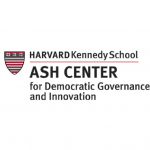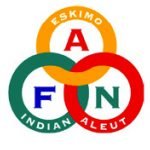Tununak, Alaska
For Baxter Bond, a Yup’ik student from Tununak studying at the University of Alaska Fairbanks, the biggest challenge so far has been being away from home. Baxter grew up very close to his family and says it takes patience and strength to be away from home for so long, but fortunately he has been able to find friends and support through ANSEP. Baxter is not alone; many students from rural Alaska face the same challenge. At the university level, ANSEP uses study groups, peer and professional networks, planned social activities, and an emphasis on community to help rural students transition to the college environment. Now Baxter is just one year away from his Yup’ik degree and two years away from his Bachelor of Science in Mechanical Engineering. To Baxter, STEM education is important because it helps individuals develop their interests. He says through their knowledge of fields like Engineering, Marine Biology, Wildlife Biology, or Math, Alaska Native students can go back home and improve the knowledge about the environment, and help their villages become a better place.
Baxter first connected with ANSEP his senior year of high school while attending Mt. Edgecumbe High School. He’s now pursuing two degrees from the University of Alaska Fairbanks while participating in ANSEP’s University Success program. In the next two years, he hopes to acquire both a B.A. in Yup’ik and a B.S. Mechanical Engineering. He’s currently working for the Alaska Center for Energy and Power (ACEP), which is “based at the University of Alaska and dedicated to applied energy research and testing focused on lowering the cost of energy throughout Alaska and developing economic opportunities for the State, its residents, and its industries.” Baxter became connected with ACEP through ANSEP and his involvement with the American Indian Science and Engineering Society (AISES).
Baxter finds inspiration in people back home who know he’s going to college and in his fellow students – anyone who desires to further their education. He says, “I find it really, really incredible that despite our different upbringings and differences at home, our different locations in the state and even in the world, that many of us have decided to go to college and further our education. And even if I don’t particularly know the person, I still find it really incredible and inspiring that both of us, despite being completely different, we chose to do the same thing.” He recalls a story that stuck with him about another student who had started college in Developmental Math and had worked his way all the way up to Differential Equations. Despite starting at a junior-high level class, the student had the persistence and determination to work his way up to the high-level course, which Baxter described as “incredible.”
His favorite ANSEP memory is from the annual ANSEP banquet, where he enjoys listening to ANSEP speakers and guest speakers as well as meeting with people he hasn’t seen in awhile. He says the banquet is a “wonderful event that showcases what’s great at ANSEP.” Each year, over a thousand current ANSEP students, alumni, faculty, staff, and partners gather together for a reception and banquet to celebrate ANSEP students and their accomplishments. In 2015, ANSEP celebrated its 20th anniversary.
A fun fact about Baxter: he’s really into photography, which he says has “become more of an obsession than a hobby.” He likes photography for its aesthetic value and the ability to share one’s story and voice through the camera. He takes his time everywhere he goes to capture cool events and the photo you see above is one of his own self-portraits.
Baxter’s advice for other students pursuing STEM degrees: be patient with yourself. Remember that the number of credits may seem overwhelming, but take little steps, focus on one piece of homework at a time, and before you know it, you’ll be graduating. He also says don’t try to go at it alone, get help. And when possible, he finds the best way to learn is to teach; ideas solidify in his head when he’s helping his classmates.




